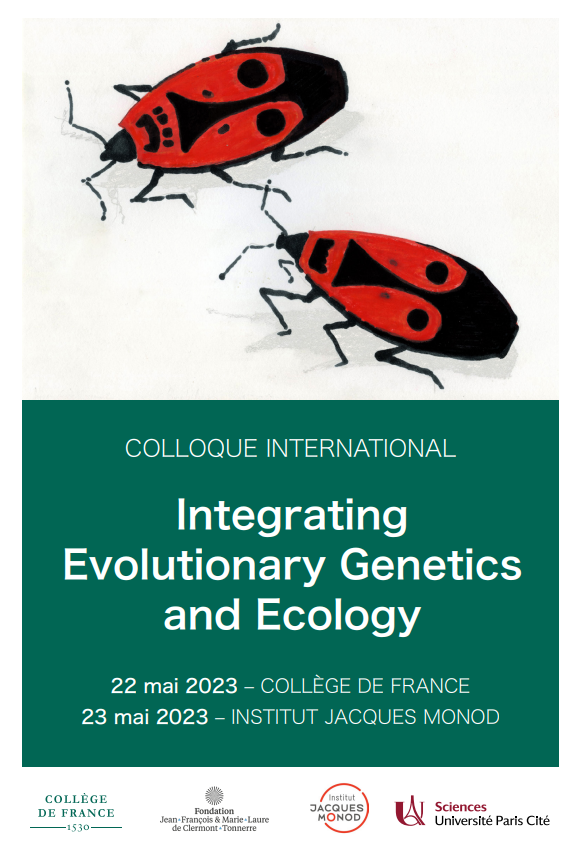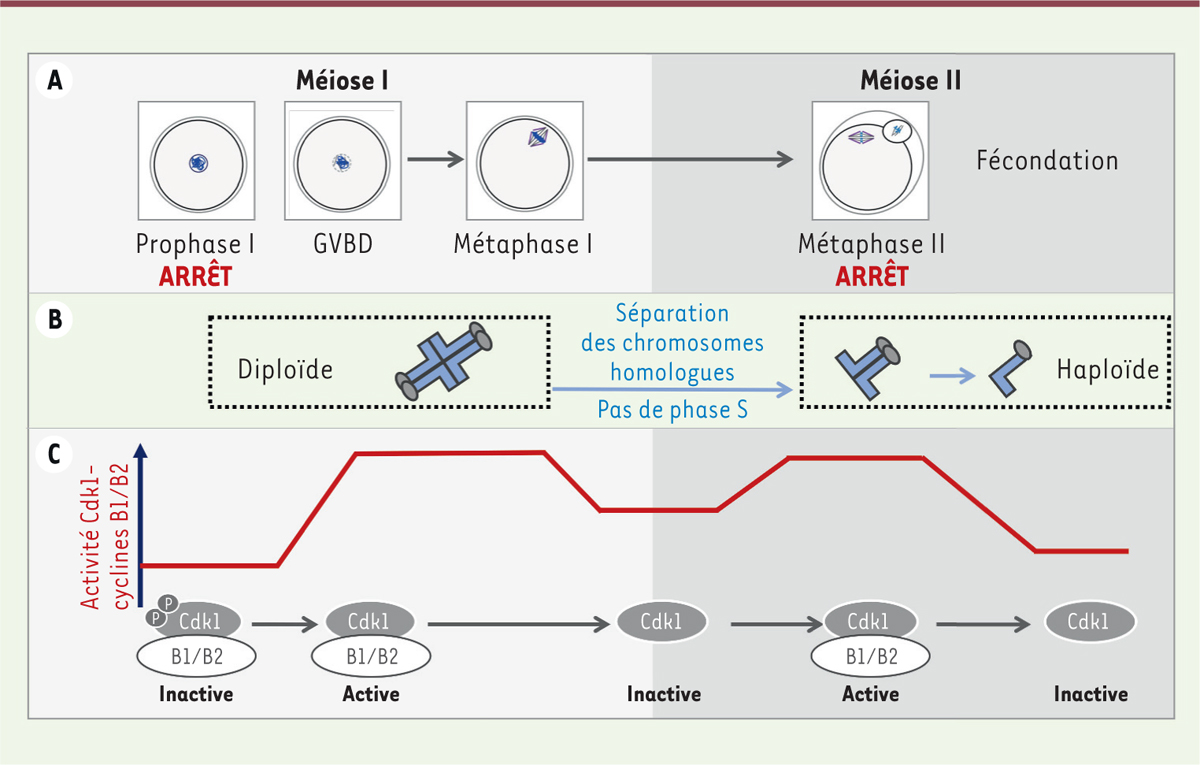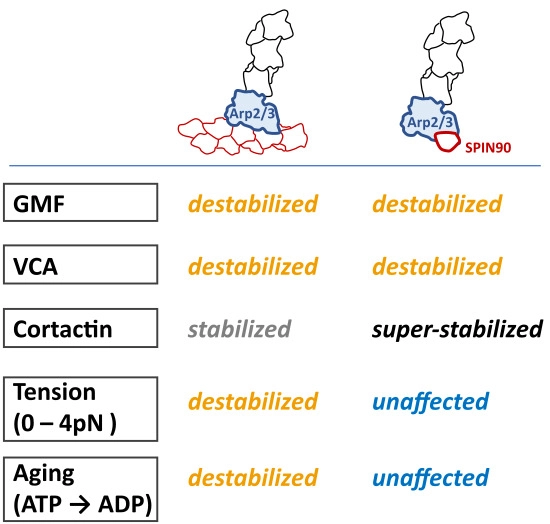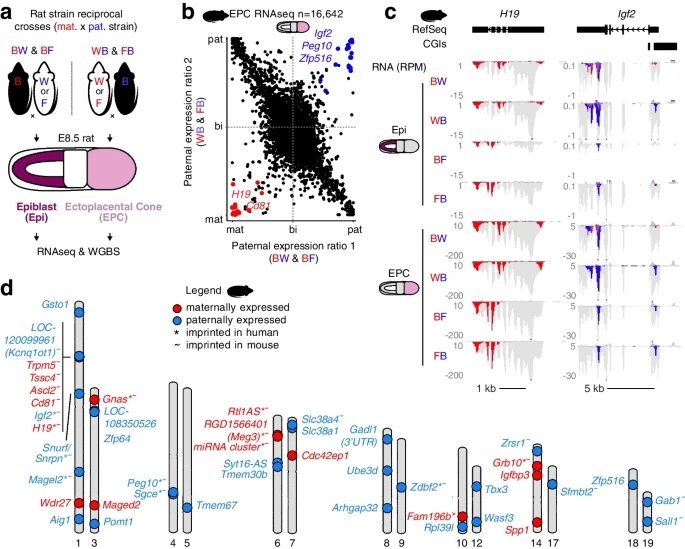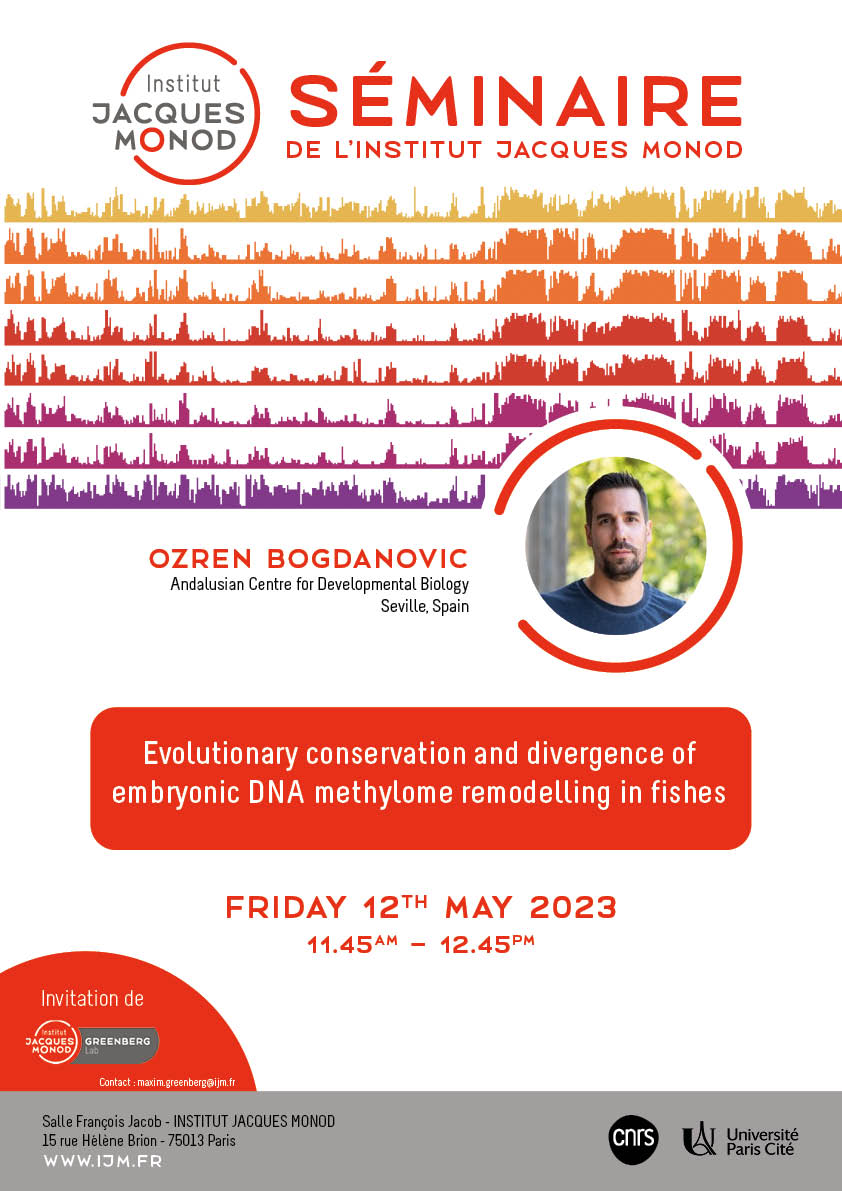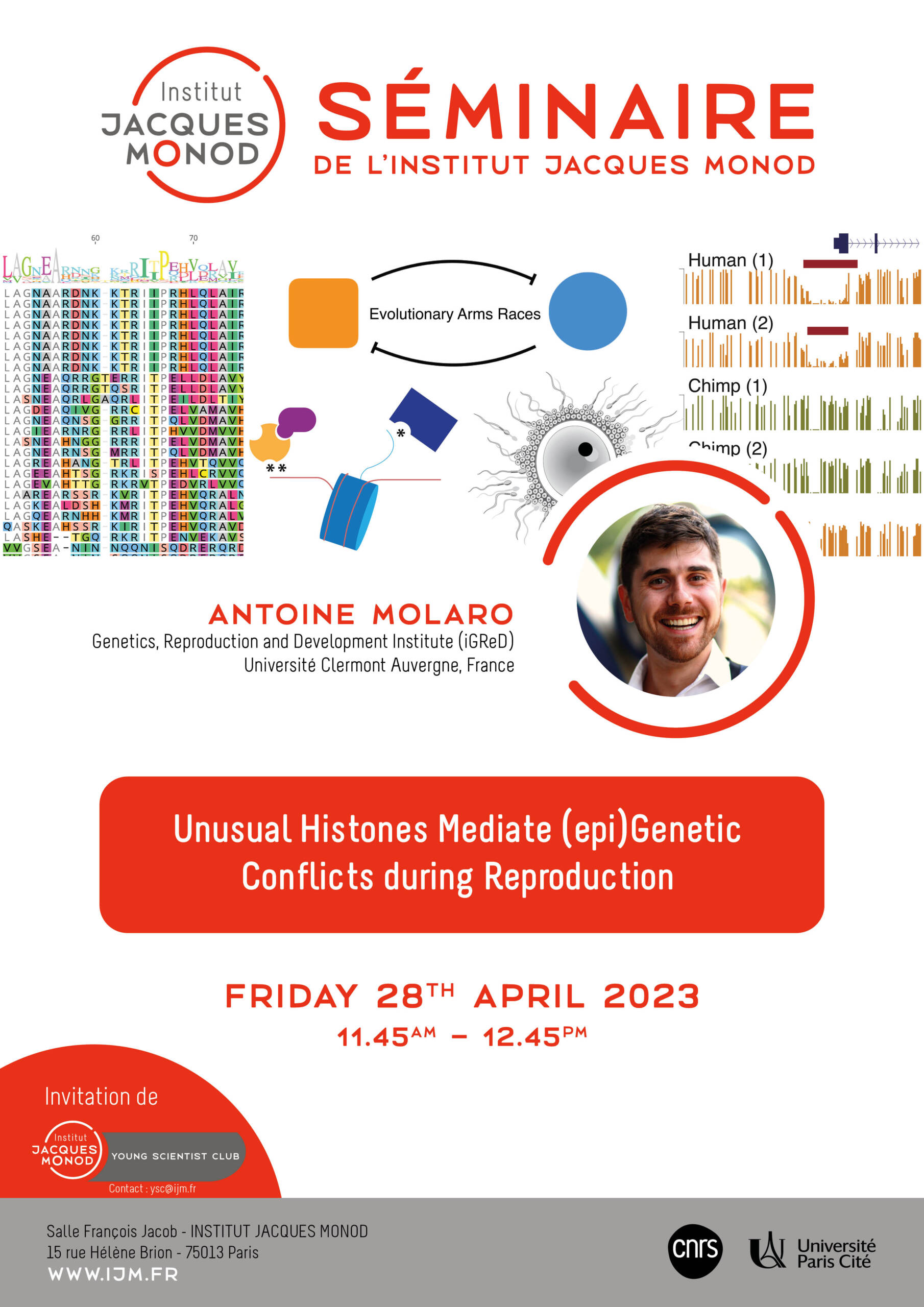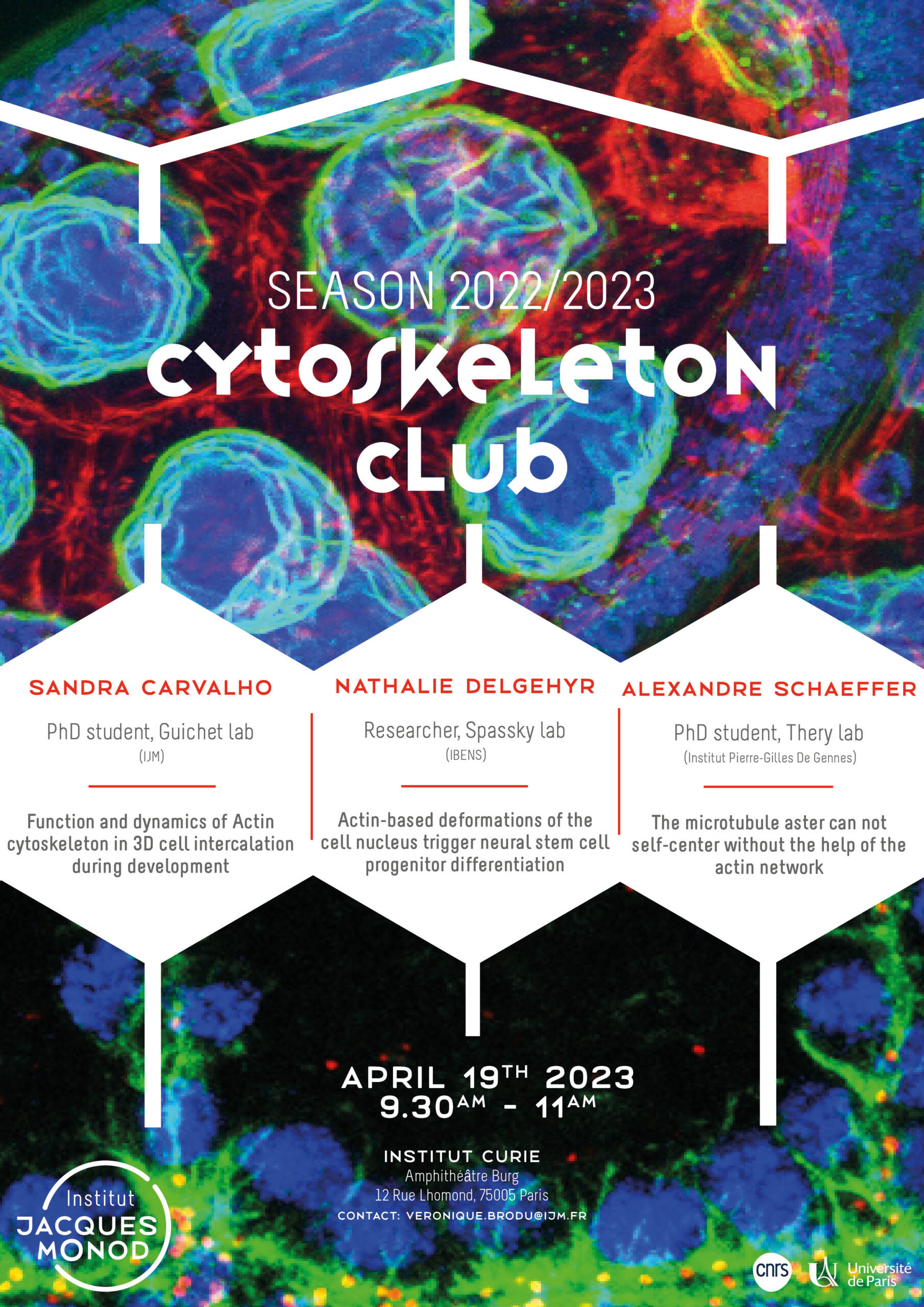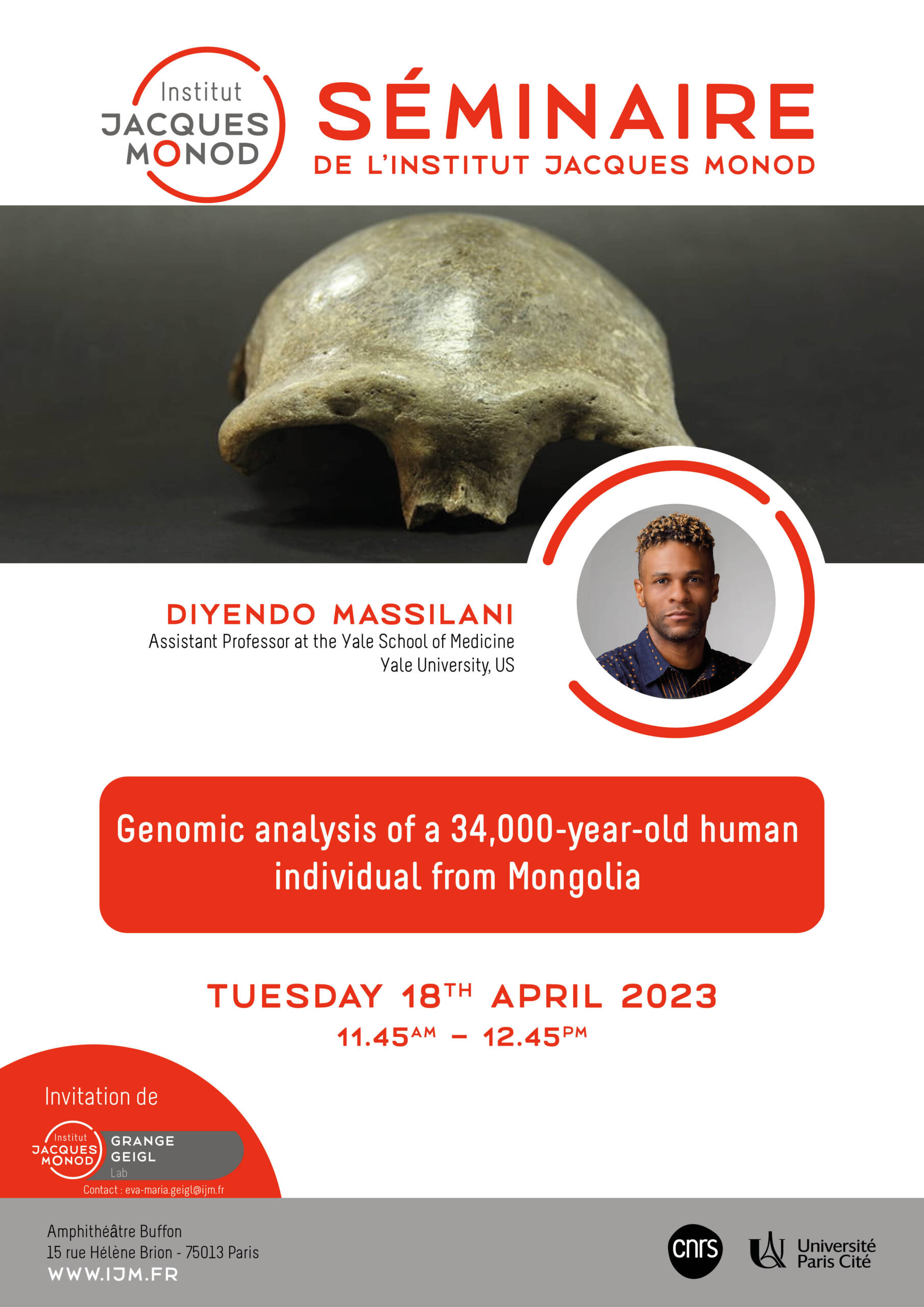Virginie Courtier and Abderrahman Khila organize the International symposium " Integrating Evolutionary Genetics and Ecology" which will take place in Paris on 22-23 May 2023.
Locations :
22 May 2023 : Collège de France - Amphithéâtre Maurice Halbwachs - 11, place Marcelin-Berthelot 75005 Paris23 May 2023 : Institut Jacques Monod - Amphithéâtre Buffon - 15, rue…
